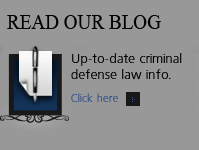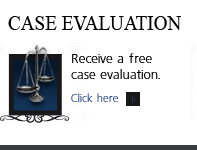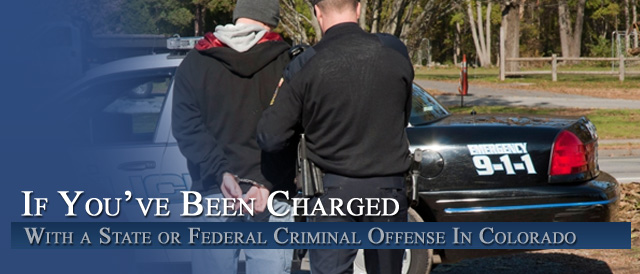

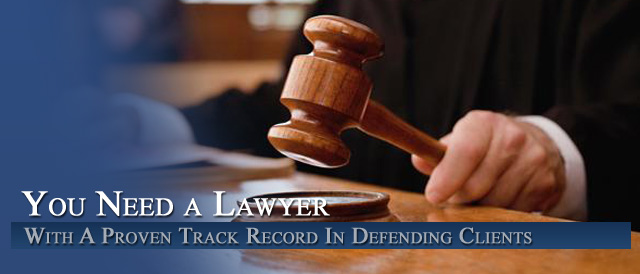
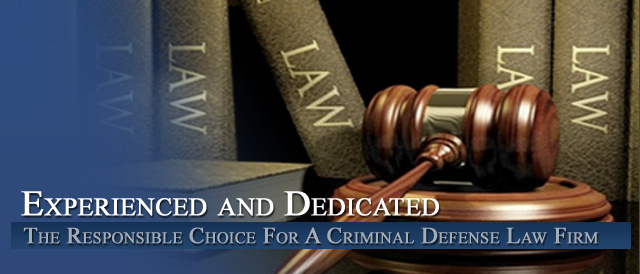
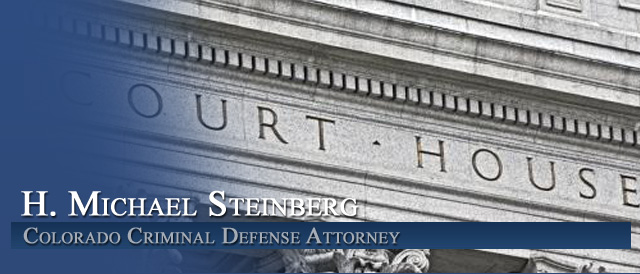
Developing A Criminal Case Defense Theory To Colorado Criminal Charges – Winning At Trial
by Colorado Criminal Defense Lawyer – H. Michael Steinberg
To discharge the responsibility of properly and responsibly handling the criminal defense in aby Colorado criminal case – the best Coloado criminal defense lawyers examine the facys, evidence and law from every angle. Part of that process involves the creation of a criminal case defense theory. “
Challenging The Indictment or Criminal Information
Stage 1 – To Create An Orgabized and Coherent Colorado Criminal Case Defense Theory…
… the criminal defense lawyer must carefully review the indictment or criminal information to make a determination as to the nature and specifics of the crime or crimes with which the defendant is charged. This is done by detailing the “elements of the offense” and all of the possible defenses that apply to the crimes charged.
The Colorado Criminal Investigation
Stage 2 – The next stage requires that the lawyer thoroughly investigate the facts of the case:
The steps at this stage require – at a minimum the lawyer should:
- Interview the defendant as to his version of the facts.
- If possible, interview eyewitnesses to the alleged crime to obtain their version of the facts.
- If possible, interview other potential witnesses who may have relevant information regarding the alleged crime, or the character of the defendant.
- Inspect and examine carefully all documents and other materials made available by the prosecution.
- If applicable, examine the scene of the alleged crime.
Stage 3 – Were Their Any Constitutional Rights of the Defendant Violated?
The lawyer should next check to determine if the defendant’s constitutional rights were violated.
Was the Defendant Mirandized?
When arrested, was the defendant warned that he could remain silent and that anything said can and will be used against the defendant? When arrested, was the defendant advised that he had the right to an attorney (even if defendant could not afford an attorney) and that the attorney could be present during any interrogation by the government?
Was There an Illegal Search?
Was there an unreasonable search and seizure of defendant’s person and/or property? Was there probable cause for any arrest or any search warrant?
Stage 4– Defense of The Case In The Courtroom – Trial Issues
The fourth stage is to determine how the lawyer will go about developing the legal defenses to be used at trial in the courtroom:
- Here the Colorado Criminal Defense Lawyer Should:
- Identify the facts you will need to establish (e.g., eyewitness has poor eyesight or the defendant has an alibi).
- Identify the witnesses you will need to establish those facts
- Determine whether the prosecution’s witnesses’ have significant credibility issues.
- Visit the scene of the crime to verify, for example, that an eyewitness could not possibly have seen the crime from where he was located.
- Identify any facts that undercut your theory (e.g., the defendant’s alibi is a close personal friend with a motive to lie)
No matter what strategy seems best, defense counsel should always emphasize for the jury the heavy burden that the prosecution bears. A defendant is entitled to raise “inconsistent defenses” so long as the proof of one does not necessarily disprove the other. For example, the defenses of insanity and self-defense, intoxication and non-involvement, insanity and alibi, which defenses are inconsistent, may be raised since proof of one does not disprove the other.
Deciding on A Specific Defense Theory
A criminal defense lawyer needs to specifically address the defendant’s innocence at trial. To that end several possible defenses can be developed.
The Burden of Proof – Beyond A Reasonable Doubt
Has the prosecution borne the burden of proof?
The accused is presumed innocent until and if he is proven guilty. Under our laws – no person shall be found guilty without being judged as such by a court according to the law. The prosecutor’s duty is to prove that the client is guilty of the charges against him. To understand that the criminal defense lawyer must consider and analyze the following questions:
-
Self-driven act – Did the client act from his own free will? What evidence has the prosecution presented to prove that the client acted of his own accord?
- State of mind – Under what state of mind would the client’s act constitute a crime (ex: intentionality, negligence, disregard of the outcome)? What evidence has the prosecution presented to prove that the client in his actions had the requisite criminal intent, had specific knowledge or skill necessary for committing the act or was criminally negligent
- Cause and effect – Did the client’s act result in the ultimate injury?
- Direct cause -Were the client’s actions far enough from the charged crime that he should not be subject to any criminal responsibility?
- Legal obligation – Does the law stipulate that the client must act in specific ways to exercise his distinctive legal obligation?
Elements of The Crime Charged –
What laws define the elements of a crime? Are these laws contradictory with each other? How much evidence must be presented in order to sufficiently meet all the required elements of the accused crime? What are the elements of the crime that the client should have been charged with, but was not?
- Does the evidence presented meet the evidence requirements for all the elements of the alleged offence? What are the legal stipulations regarding evidence for elements of the accused crime? What evidence supports the prosecution’s case? What evidence is not consistent with the prosecution’s argument?
- If the prosecutor cannot present sufficient evidence to support the charged offence or even support a lesser offence, the criminal defense lawyer must point out the insufficiency of evidence to the court and request that the court either judge the client as innocent or dismiss the charges.
The Statute of Limitations
- Has the statutory time limit for criminal prosecution expired?
Affirmative Defenses
Is it possible to make an affirmative defense if the facts of the crime cannot be denied?
In an affirmative defense, counsel does not deny the elements of the alleged offense but still attempts to prove the innocence of the accused. Such a defense requires counsel to present sufficient evidence, including witness testimony or material evidence. Even if the lawyer does not deny that the accused committed the alleged acts, the defense must try to prove that the acts were justified or provide another legal defense for negating the accused’s criminal liability.
Complete Defenses Such As Alibi
Can the criminal defense lawyer prove the innocence of the accused?
This is one type of affirmative defense and aims to prove that the accused did not commit the crime, i.e. that the accused could not possibly have committed the alleged offense. The two most common methods of proving the accused innocent are:
Proving the Accused’s Alibi
Using the material evidence to prove that the alleged offense could not have happened.
In employing the first strategy, the lawyer can provide credible evidence, such as the testimony of a witness at the scene to prove an alibi; if adopting the second strategy, the legal aid lawyer can cite credible evidence demonstrating the weaknesses of the material evidence against the accused, and explain how these limitations or weaknesses exclude the possibility of the alleged offense.
A Specific Example – A Stabbing – First Degree Assault
Suppose the accused was accused of stabbing the victim, and the evidence provided by the prosecutor indicates that the victim was stabbed by an assailant who used his right hand. In such circumstances, if the criminal defense lawyer can provide credible evidence to prove that the accused’s right hand was previously injured and that he could not have used it at the time that the crime was committed; this demonstrates that the accused could not have committed the alleged offense.
The Justification Defenses
Can the defense lawyer justify the crime committed by the accused?
- Justifying the crime for the accused is another type of affirmative defense wherein the accused does not deny the alleged offense, but argues that he should not bear legal responsibility for it. Counsel is arguing that the accused committed the alleged offense for justified causes that are socially accepted or that conform to moral principles.
- Is there anyone else who should take more responsibility than the client for the alleged offense?
- Does the accused have any other jointly accused persons? If so, the lawyer must investigate the concrete role of every co-accused to determine the actual role of the client. The lawyer needs to pay particular attention to joint crimes.
- Was the Defendant only a minor player or the leader in the course of the crime?
- Did the accused organize, plot, or direct/lead the criminal group or other jointly accused persons?
- Dis the accused play an important role in the course of joint crimes?
- Did the accused instigate others to commit a crime?
- Did the accused play a secondary role in the course of preparation and commission of the crime?
The Colorado Sentencing Hearing – Preparing For Sentencing Mitigation
Is the accused eligible for a lighter or mitigated punishment?
The court can be allowed to give the accused a mitigated punishment or exempt him/her from punishment under some circumstances according to the relevant laws. An experienced criminal defense lawyer can still seek a mitigated punishment for the client even if there are no statutory specifications on mitigation.
- Points of evidence that may help this:
- The accused does not have a long-term criminal record
- The accused has expressed sincere remorse and self-examination for having participated in the crime
- The accused has compensated the victim fro all his/her losses
- The accused is still a minor and also wants to continue schooling; his school also allows him to continue enrollment.
- The accused needs to take care of elderly and young household members.
- The accused is developmentally disabled and cannot sensibly make judgments, and is thus easily taken advantage of by others.
- The accused had a difficult childhood (for example, he was ill-treated at home) that has affected his long-term personal development.
- The accused has had to overcome great hardships t hat have tested his limits and abilities as a person( for instance, domestic violence, drug addiction)
- The accused has good work experience or educational background, or has made significant contributions to society
- Any other mitigating circumstances about the accused. The defense lawyer should think of any means to describe the accused as pitiable and condonable.
Defense Wiki has an excellent follow up article that further develops this article;
A theory of the case consists of the following parts:
1.The relevant law – The law or jury instructions that apply to the issues which arise in your case.
2.The facts of the crime that are beyond dispute – Those facts which (no matter what you do or say) will be believed by the factfinder as true. These include those facts which you will be able to present (through affidavit, direct examination or cross-examination) which the factfinder would likely accept as true.
3.Common sense – Ordinary people must believe based on their life experiences that the defense theory of the case is what happened.
4.Emotional factors – Emotions often motivate more decisions by people than logic. Therefore, a theory of the case should generate feelings in the fact finder as to what, how, and why the case occurred.
*(attribution is made to Defense Wiki formany of the ideas in this article ) For a LINK to WIKI Defense – CLICK HERE
Please call our law firm if you have questions about ..
….Developing A Criminal Case Defense Theory To Colorado Criminal Charges
H. Michael Steinberg has been a Colorado criminal law specialist attorney for 40 years (as of 2012). For the First 13 years of his career, he was an Arapahoe – Douglas County District Attorney Senior prosecutor. In 1999 he formed his own law firm for the defense of Colorado criminal cases.
In addition to handling tens of thousands of cases in the trial courts of Colorado, he has written hundreds of articles regarding the practice of Colorado criminal law and frequently provides legal analysis on radio and television, appearing on the Fox News Channel, CNN and Various National and Local Newspapers and Radio Stations. Please call him at your convenience at 720-220-2277
If you have questions about Developing A Criminal Case Defense Theory To Colorado Criminal Charges in the Denver metropolitan area and throughout Colorado, attorney H. Michael Steinberg will be pleased to answer those questions and will provide quality legal representation to those charged in Colorado adult and juvenile criminal matters.
In the Denver metropolitan area and throughout Colorado, attorney H. Michael Steinberg provides quality legal representation to those charged in Colorado adult and juvenile criminal matters involving the development of a Colorado Criminal Case Defense Theory.
Other Articles of Interest:
- A Colorado Criminal Lawyer On Designing A Defense Theory Of The Case
- Developing A Defense Strategy
- Search Warrants!
- Defense Strategies
- Colorado Statute: Sexual Exploitation of a Child

